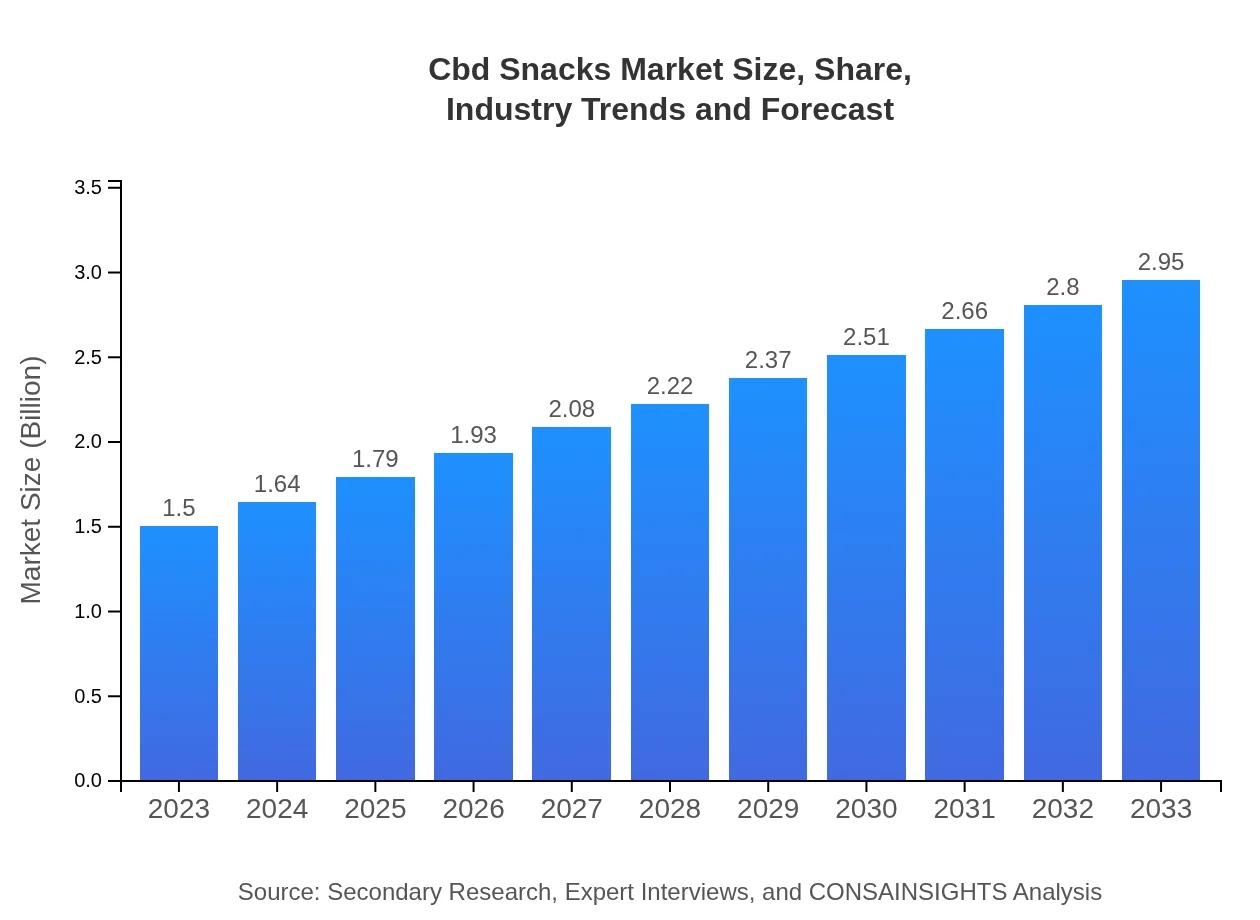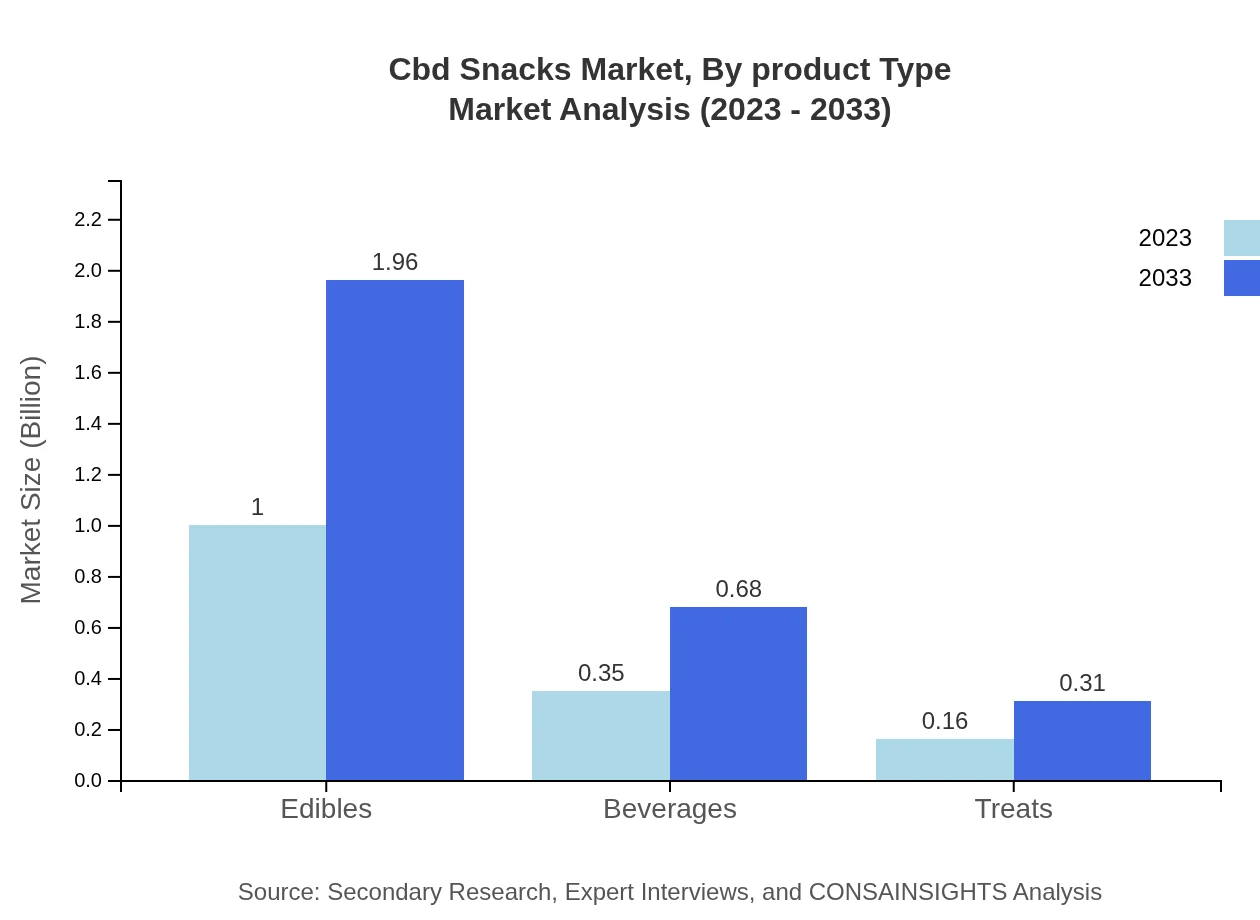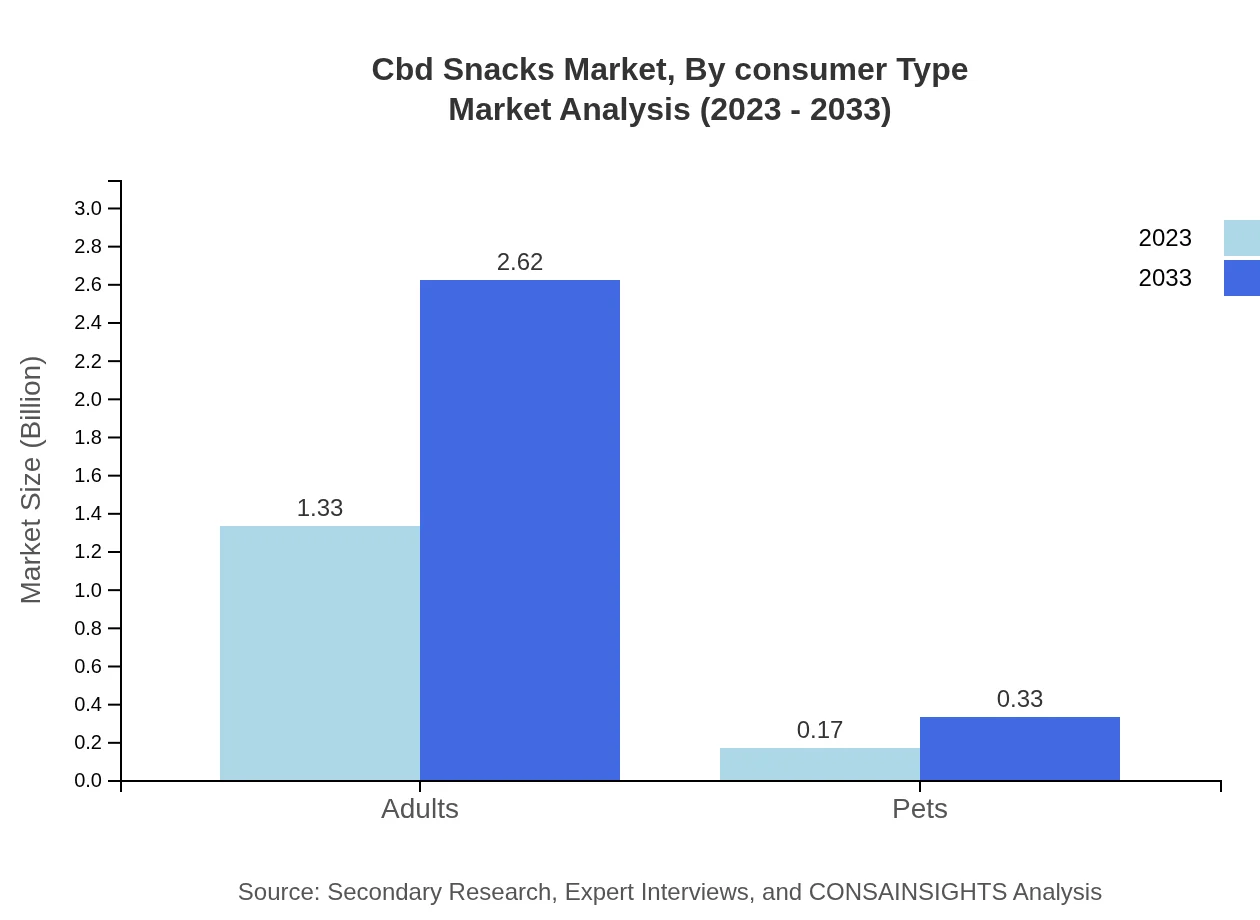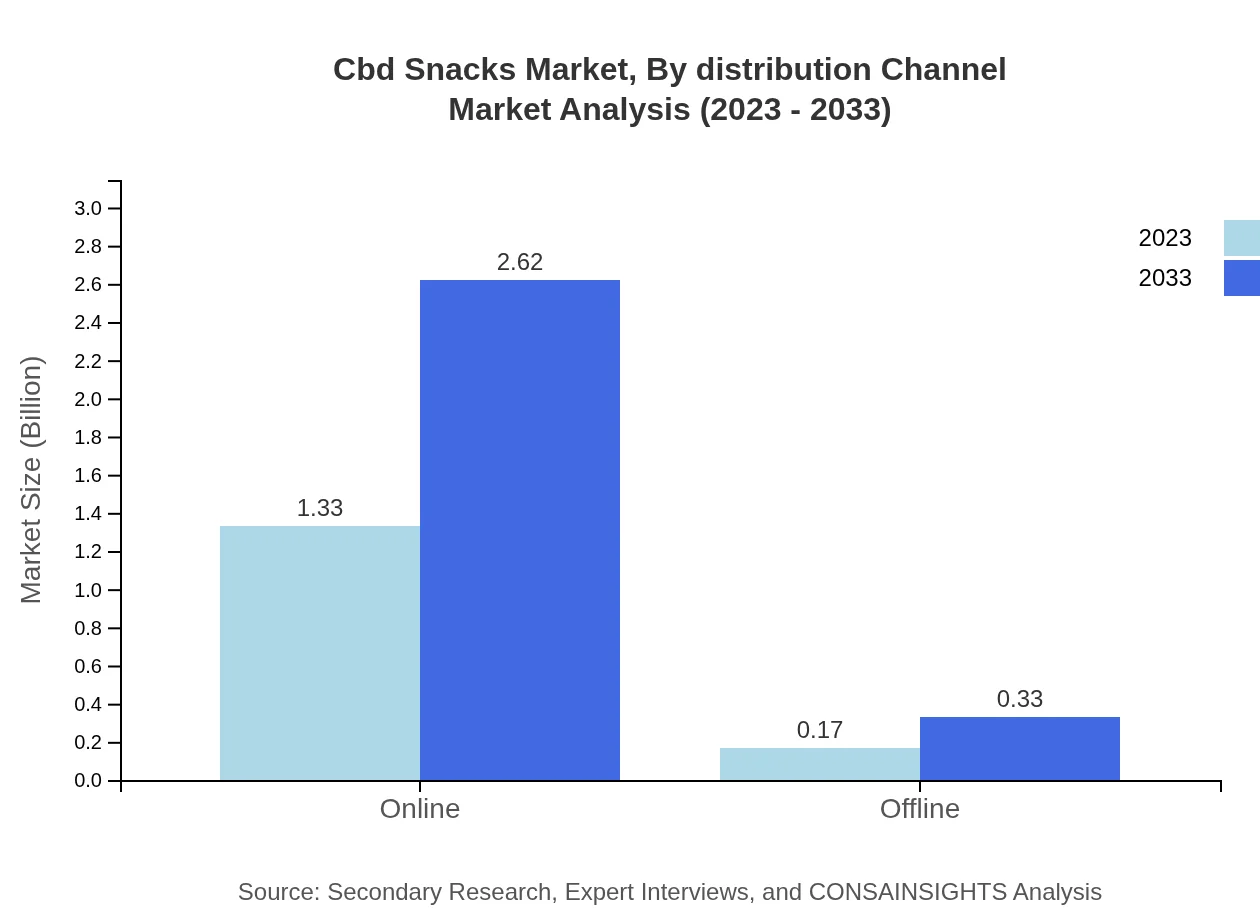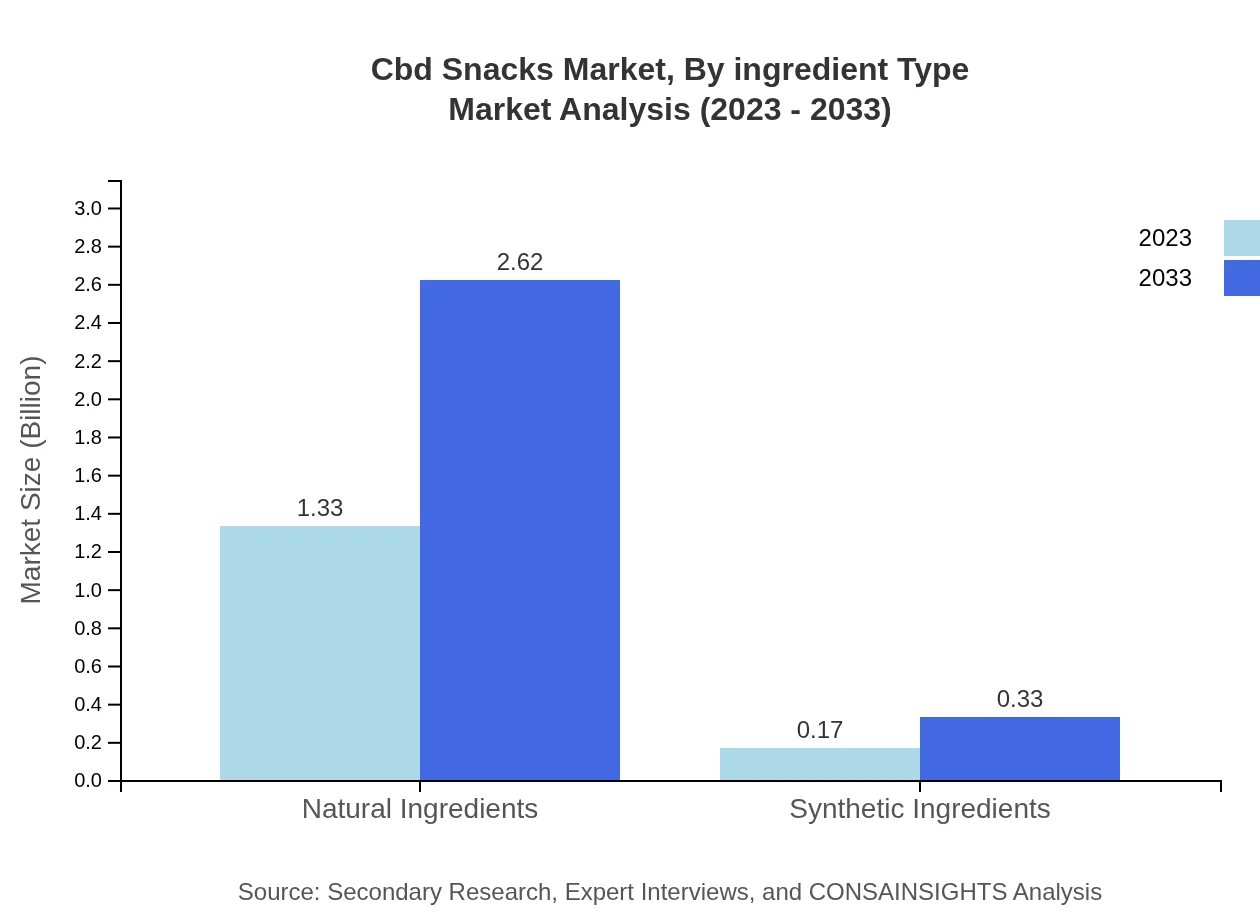Cbd Snacks Market Report
Published Date: 31 January 2026 | Report Code: cbd-snacks
Cbd Snacks Market Size, Share, Industry Trends and Forecast to 2033
This report provides an in-depth analysis of the Cbd Snacks market, covering market size, growth rates, innovations, segmentation, and regional dynamics from 2023 to 2033. Key insights are presented to help stakeholders understand trends, forecasts, and competitive landscapes.
| Metric | Value |
|---|---|
| Study Period | 2023 - 2033 |
| 2023 Market Size | $1.50 Billion |
| CAGR (2023-2033) | 6.8% |
| 2033 Market Size | $2.95 Billion |
| Top Companies | Charlotte's Web, Medterra, Green Roads |
| Last Modified Date | 31 January 2026 |
Cbd Snacks Market Overview
Customize Cbd Snacks Market Report market research report
- ✔ Get in-depth analysis of Cbd Snacks market size, growth, and forecasts.
- ✔ Understand Cbd Snacks's regional dynamics and industry-specific trends.
- ✔ Identify potential applications, end-user demand, and growth segments in Cbd Snacks
What is the Market Size & CAGR of Cbd Snacks market in 2023?
Cbd Snacks Industry Analysis
Cbd Snacks Market Segmentation and Scope
Tell us your focus area and get a customized research report.
Cbd Snacks Market Analysis Report by Region
Europe Cbd Snacks Market Report:
The European Cbd Snacks market is projected to expand from $0.47 billion in 2023 to $0.93 billion by 2033. The growth can be attributed to increasing product availability and evolving regulations. The UK and Germany are noteworthy players, as consumer acceptance in these countries rises.Asia Pacific Cbd Snacks Market Report:
The Asia Pacific Cbd Snacks market is estimated to grow from $0.28 billion in 2023 to $0.56 billion in 2033. The region's growth is fueled by increasing consumer awareness about CBD health benefits and favorable legislative changes. Countries like Australia and New Zealand are leading the way in market acceptance, with rising e-commerce platforms facilitating product access.North America Cbd Snacks Market Report:
In North America, the Cbd Snacks market is set to grow significantly from $0.52 billion in 2023 to $1.03 billion in 2033. The U.S. remains the largest market due to its established legal framework surrounding hemp and CBD products, driving high consumer demand and product innovation.South America Cbd Snacks Market Report:
The South America Cbd Snacks market is relatively nascent, projected to rise from $0.04 billion in 2023 to $0.08 billion by 2033. Brazil’s developing cannabis regulations are likely to drive market growth as consumer education about CBD benefits increases, making it a key area for future developments.Middle East & Africa Cbd Snacks Market Report:
The Middle East and Africa Cbd Snacks market, currently valued at $0.18 billion in 2023, is anticipated to reach $0.35 billion by 2033. Emerging markets are focused on developing CBD regulations, with increasing public interest in health and wellness products aiding market growth.Tell us your focus area and get a customized research report.
Cbd Snacks Market Analysis By Product Type
The CBD Snacks market is dominated by edibles, projected to grow from $1.00 billion in 2023 to $1.96 billion by 2033, indicating a significant share of 66.34% in 2023. Beverages also contribute, growing from $0.35 billion to $0.68 billion, accounting for 23.09% of the market. Treats, although smaller, are essential for niche markets, expanding from $0.16 billion to $0.31 billion.
Cbd Snacks Market Analysis By Consumer Type
The adult segment leads the CBD Snacks market with a size of $1.33 billion in 2023, forecasted to grow to $2.62 billion by 2033, composing 88.77% of the market. The pet segment, while smaller, is rapidly gaining traction, expected to reach $0.33 billion by 2033 from $0.17 billion in 2023.
Cbd Snacks Market Analysis By Distribution Channel
Online sales dominate the Cbd Snacks distribution landscape, estimated at $1.33 billion in 2023 and projected to similarly grow to $2.62 billion by 2033, maintaining an 88.77% share. Conversely, offline channels are anticipated to rise from $0.17 billion to $0.33 billion, capturing increasing consumer preference for in-person shopping experiences.
Cbd Snacks Market Analysis By Ingredient Type
Natural ingredients command a significant share of the market, growing from $1.33 billion in 2023 to $2.62 billion by 2033, representing 88.77% of the Cbd Snacks sector. Synthetic counterparts, while also growing, remain niche and are set to increase from $0.17 billion to $0.33 billion by 2033.
Cbd Snacks Market Trends and Future Forecast
Tell us your focus area and get a customized research report.
Global Market Leaders and Top Companies in Cbd Snacks Industry
Charlotte's Web:
Known for its high-quality CBD products, Charlotte's Web is a pioneer in the CBD market, providing transparency and education about their hemp derivatives.Medterra:
Medterra focuses on creating high-quality, organic CBD products. Their commitment to lab-tested ingredients positions them as a trusted brand among consumers.Green Roads:
This company is recognized for its broad range of CBD products and has a strong presence in the edibles market, emphasizing innovation and consumer education.We're grateful to work with incredible clients.









FAQs
What is the market size of cbd Snacks?
The global CBD snacks market is valued at approximately $1.5 billion in 2023, with a projected CAGR of 6.8% through 2033, indicating significant potential for growth and expansion within the industry.
What are the key market players or companies in the cbd Snacks industry?
Key players in the CBD snacks industry include leading brands focusing on innovative product offerings, regulatory compliance, and strong distribution networks, reflecting a competitive landscape responsible for shaping market trends and consumer preferences.
What are the primary factors driving the growth in the cbd Snacks industry?
The growth in the CBD snacks industry is driven by factors such as increasing consumer awareness of health benefits, rising demand for natural and organic products, and expanding distribution channels, including online platforms and retail outlets.
Which region is the fastest Growing in the cbd Snacks market?
North America is the fastest-growing region in the CBD snacks market, with its value projected to reach $1.03 billion by 2033, supported by increased product acceptance and evolving regulations favoring CBD food products.
Does ConsaInsights provide customized market report data for the cbd Snacks industry?
Yes, ConsaInsights offers customized market reports for the CBD snacks industry, allowing clients to obtain tailored insights and data specific to their operational needs and strategic objectives.
What deliverables can I expect from this cbd Snacks market research project?
Deliverables from the CBD snacks market research project include detailed market analyses, competitive landscape assessments, consumer trend reports, and regional insights to guide business decisions and strategies.
What are the market trends of cbd Snacks?
Market trends in the CBD snacks sector indicate a shift towards edibles, with a significant share of 66.34% in 2023, and an increasing preference for natural ingredients, as consumers prioritize health and wellness.

